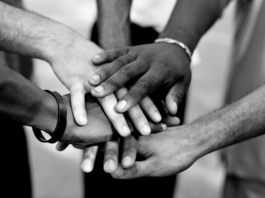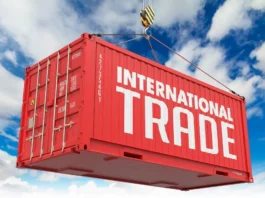
There are few European nations where state-sponsored gaming is the sole regulated alternative for internet gambling. Essentially, this implies that in terms of the legal options accessible to players, it is lagging behind other European nations. The government has chosen this course of action for a variety of reasons. A closer study into Norway’s rationale for this choice, as well as the consequences of enacting such rigorous rules, has been conducted.
There is a monopoly on the gambling industry in Norway thanks to Norsk Tipping, a state-owned organization that has been in business since 1948 and offers almost every form of game imaginable: sports betting, casino games, lotteries, bingo, and so on. Since its founding, Norway’s state-owned gaming company, Norsk Tipping, has been allocating the money it makes from gambling to support the country’s sports and culture.
The Norwegian government has enacted a number of laws in order to keep Norsk Tipping at the top of the market and to keep its residents from playing abroad.
Payments to some unlicensed online gambling websites were banned by Norwegian banks in 2017. Actually, Norway does not have a license for online gambling. However, when taking a look at the norske casinosider search query we see a 35% increase in 2021. After all, Norwegians may still deposit money at unlicensed internet casinos and bookies without serious difficulties. Due to the 2017 legislation’s directive to prevent payments to particular accounts, which the firms affected responded by changing their account numbers, there is a major issue.
Payments should be evaluated according to the name of the firm to which the accounts belong, rather than just by account numbers, as is suggested in a new piece of law. This should make it hard for firms to circumvent the law by opening new accounts in other banks.
Attempt to Protect Players
When it comes to gambling in Norway, the government’s major goal is to safeguard its citizens from the dangers of gambling addiction. Government-controlled gambling operators are seen to have more safeguards in place to protect and care for players, as well as a greater level of oversight.
Despite the great intent of this endeavor at protection, some players have doubts. This has led to a variety of problems for Norway’s administration even if some of the claims are true.. It’s vital to keep in mind that this is a government-created problem, and not the fault of the actors in the system.
Players Feel They Are Being Ripped Off
In the first place, gamers don’t believe that the government is treating them fairly. They don’t trust the odds presented and think they can get a better deal playing at other sites. The lower odds and costs at the state casino are believed to be a way for the government to raise a lot of money.
Even if this might have positive effects on society at large, such as greater infrastructure in the nation, online casino gamers aren’t interested in this. In general, they play to win, and they will take their business elsewhere if they believe they have been wronged in any way. Because there is just one state-run online casino available, gamers doubt their faith in the casino’s legitimacy.
Players are Choosing to Play Wherever They Want
The lack of high-quality state government websites is a logical consequence of this. When it comes to the contemporary world, the internet provides access to almost whatever a person wants. As a result, players have chosen to play in facilities located outside of the United States. That’s a big deal for Norway’s government.
The first problem is that internet gambling’s tax income is declining significantly. Around two-thirds of all internet gambling currently occurs at unregulated, offshore sites, according to current estimates. It signifies that the government will not be taxing this income. As a result, it dramatically reduces the amount of money that the government receives.
A nation’s ecology is being fully emptied of money because it’s being spent outside the country. In addition to the country’s financial loss, there are two somewhat more significant challenges.
Opposite Effects
Norway’s government is particularly concerned about this issue. Protecting gamblers is the first priority of the state-owned casino. Forcing people to play at offshore casinos, which may not have any protections in place, implies that problem gamblers will be forced to search elsewhere for casinos that do.
As a result, players are exposed to significantly more risk than they would be if there were many venues in Norway, each operated by a separate regulator. The government’s claimed goal of protecting problem athletes isn’t met, but it actually puts players at more risk in the long run. Instead of assuming that the government has adopted this strategy out of avarice, it’s more probable that officials are just unaware of what it does.
The decision to have a single regulator affects more than simply problem players. More than two-thirds of online poker gamers are choosing to play on offshore sites. The fact that many of these sites are not regulated means that gamers have little recourse.
A completely unregulated site may, for example, refuse to pay out a significant victory, and the player has nothing to do about it. To prevent this, one might play at a site that is regulated by another jurisdiction’s trustworthy authority. Even if it doesn’t provide immediate protection, the fact that the site is regulated in a different jurisdiction does make it more trustworthy.
The Norwegian government’s choice is, without a question, an odd one. The future of this is anyone’s guess, but for now, it’s producing problems for the country’s players and for the administration.












